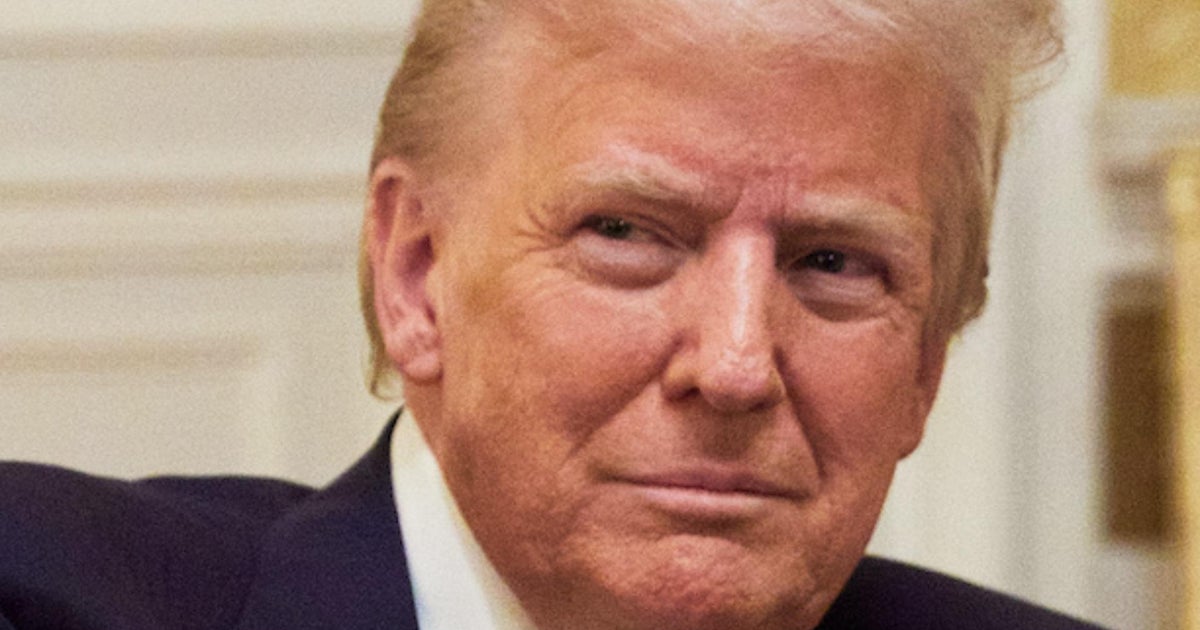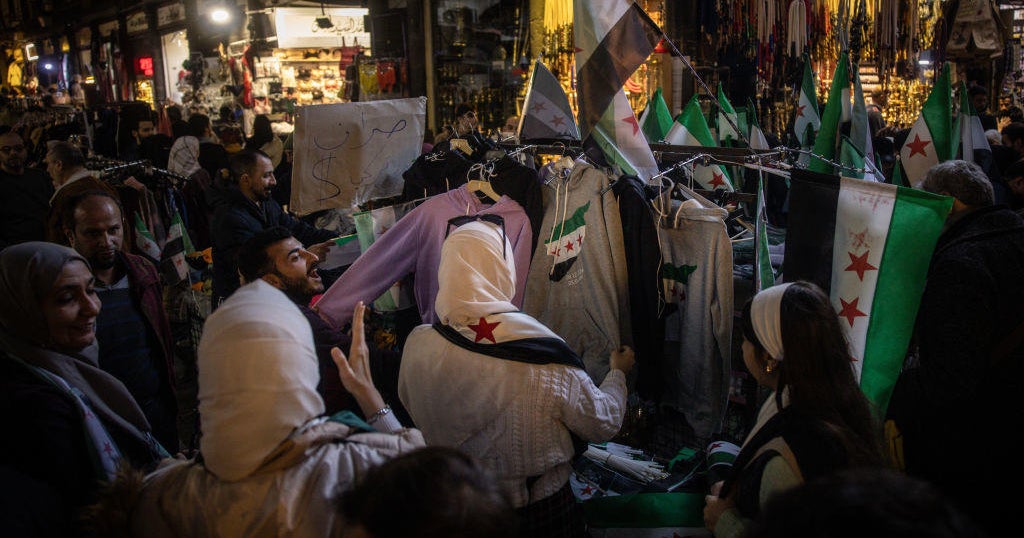Shanghai’s zero Covid nightmare

In late March, Chinese authorities warned the residents of Shanghai that they would soon be trapped in their homes. They were given little time to prepare provisions for what they were told would be a few days trapped at home to combat the spread of Covid-19.
It’s three weeks later, and China’s largest city remains in lockdown. The government has failed to provide sufficient food, leading to starving people and the emergence of a barter economy among residents. Medical care for non-Covid ailments is difficult to access, leading to reports of people dying of injuries and easily preventable diseases. Shanghaiers are furious, clashing with police and venting rage out their windows to an empty city. Robots and drones patrol the streets and the skies, sending eerie messages instructing citizens to remain calm and “control your soul’s desire for freedom.”
On top of all of that, it’s not exactly clear how much Covid-19 spread and death the most extreme measures have actually prevented. (Official reports claim there have been 400,000 cases in the city of 28 million.)
How could this happen to a city as wealthy and cosmopolitan as Shanghai? And what does the situation tell us about the Chinese political system?
To answer these questions, I reached out to Mark Frazier, a professor at the New School who studies urban politics in Shanghai and China more broadly. According to Frazier, the situation in Shanghai reflects a government dogmatically committed to its “zero Covid” policy — of preventing any community spread of the coronavirus — even as the contagiousness of the omicron variant renders the policy basically infeasible.
The commitment reflects deep flaws in the Chinese response to the pandemic, ranging from a failure to push a mass vaccination campaign to an ideological commitment to proving that China’s autocracy “works” better than liberal democracy. Yet at the same time, Frazier cautions against assuming that the scenes on display in Shanghai will galvanize a mass protest movement against the Communist Party — something that observers outside China predict far more than it actually happens.
A transcript of our conversation follows, edited for length and clarity.
Zack Beauchamp
There’s this article in the American Prospect by an anonymous journalist in Shanghai. And it starts with this:
In 2022, the richest city inside the world’s second largest economy was short on food. Residential gates were sealed and guards patrolled he perimeters as Shanghai’s citizens awaited a fearful doorknob by white suited men that could send them away. The restaurants and malls and hospitals were closed or understaffed. Deliveries were suspended. Families were separated. Pets exterminated. At night, from somewhere in the ghost-quiet city, one could hear shrieks of impotence hurled into the pitiless stars.
How did we get to that point — even in a China that I think is fairly described as totalitarian in a lot of respects — where the government has increased its control over citizens in its wealthiest city to such a remarkable extent?
Mark Frazier
Whether we call it to totalitarian or hard authoritarian, the tools are in place to keep people surveilled, and indeed even locked down, or to track their movements if they’re trying to transgress the quarantine or lockdown requirements. I think the bigger surprise is the lack of basic provisions.
Food scarcity in China’s wealthiest city is something that is indeed puzzling and shocking. Even two months ago, you would’ve never believed someone who told you that 25 million people in Shanghai would be running around looking for food on a daily basis.
Zack Beauchamp
There’s two things going on, it seems. One is the zero Covid policy itself and the authoritarian way in which China has designed it. The other is the failures of certain elements of the implementation — access to food and medical treatment for non-Covid ailments, for example.
One question I have is whether those two things can be disentangled. To what extent was there a better version available of the zero Covid policy — one that was just bungled terribly in Shanghai? And to what extent are the failures on display there intrinsic to the idea of exerting incredibly harsh control over citizens in the name of stopping the spread of Covid?
Mark Frazier
I think that’s a really good question.
If you think about the Chinese government going back to even Wuhan in early 2020, [it was] clearly locked into a zero Covid strategy. Six months ago, and even more recently, you would’ve said “this worked for China.”
Once you adopt that [thinking], then you downplay the need to get vaccines to the vulnerable populations, especially the elderly. You live with a homegrown vaccine that is clearly not performing as well as foreign-made vaccines. And it’s not as though you can change railroad tracks that quickly and go to a living-with-Covid type of strategy that you see elsewhere in the world, because you have this vast vulnerable population who haven’t even received the vaccine in many cases.
At the same time, you could have given people more [advance] warning to go out and provision themselves. That’s been one of the biggest complaints: that people didn’t have any time to really prepare for this. And they were told, at first, that this is just going to be a four-day lockdown. And now you’re in an extended lockdown. All the emergency room horror stories where people who really need to get medical treatment unrelated to Covid are being turned away or postponed — and in some cases dying.
The zero Covid did not have to lead to these types of implementation failures, but at the same time, you can’t just suddenly switch over from zero Covid to something else.
Zack Beauchamp
This inability to switch, even to a limited degree, is because of the lack of vaccination, right? The public health costs would be severe, so they needed to go back to some lockdown when they started getting the new variants.
In theory, mass vaccination could have obviated the need to impose such draconian measures. And there’s nothing about a zero Covid policy that prevented them from engaging in vaccination campaigns as an extra layer of defense. So why didn’t they?
Mark Frazier
This is really interesting because the Chinese Communist Party is very good at mass campaigns when it decides that it wants to undertake them. Going back to the 1950s, there are lots of these inoculation campaigns that had tremendous positive consequences for public health.
I think in part it was timing: the [early] cases being brought under control through their quarantine, zero-Covid strategy pretty quickly. When the Chinese vaccine arrives on the scene, there’s less of a sense of desperation among the public and among the government officials; when we did it in America in early 2021, everybody was still more or less locked down — and the vaccine came along as a kind of salvation. Even then, we had large levels of hesitancy.
I think it was just the timing, as much as anything else, that led the party to decide not to engage in a mandatory mass vaccination campaign.
:no_upscale()/cdn.vox-cdn.com/uploads/chorus_asset/file/23404933/GettyImages_1239932199.jpg)
Zack Beauchamp
The result, though, is a population in Shanghai that’s furious about how it’s being treated. We’ve seen these incredible scenes of crushes of people on the street protesting the policy, of people screaming out their windows in fury and frustration, of government drones telling them, to “control your soul’s desire for freedom” — which, what a remarkable quote. It’s all so disturbing.
But to what extent are the images of protests reflective? And to what extent is there genuine anger among the population being directed not just at the immediacy of the failed response, but also the governance structure in the city and in the country?
Mark Frazier
That’s hard to tell. Going back to middle-class protests 14 years ago in Shanghai over the maglev [magnetic levitation] railway plans to run it through the middle of the city, there was a great deal of hope among Westerners that the anger displayed by the population was against the system. People would say that this is the sprouts of democracy, and no doubt some of the people in those protests would likely fall into that category.
But I think we overexaggerate when we see videos of desperate apartment dwellers talking about the need for food. Even if they yell at a local official who’s in the courtyard down below touring the scene, as happened in Wuhan also, it’s much more directed at the mistakes and the ignorance and corrupt actions of local officials than at the system, as best we can tell.
Zack Beauchamp
And to what extent does the current situation resonate outside of Shanghai? It’s a city that has a very particular place in China, and a sense that “this shouldn’t be happening here” has apparently generated a lot of anger and resentment among its citizens during the current lockdown.
But I also wonder, by that same token, how people in other parts of China process these scenes. Or maybe they just don’t see them at all?
Mark Frazier
Yeah, they’re not seeing the protests. If they go on Weibo [a Chinese social media platform], they can see whatever hashtags are related to Shanghai, and lots of individual stories like “I cut my hand in a motorcycle accident yesterday and I went to the emergency room bleeding out and they said I had to wait because I didn’t have a negative Covid test.” These kinds of things, people can read and then make whatever inferences they do from it.
I think, generally speaking, people in the other cities in China that are locked down probably have the typical attitude that many Chinese do toward Shanghai which is that “they’re a privileged, wealthy bunch, a little too Westernized for our taste. And they’ll be fine because they’ve been enjoying the good life in Shanghai. And we here in this second-, third- tier city, have had all kinds of other problems that we’ve coped with over the years.”
[Outsiders] don’t hear as much reporting from those other cities about what the conditions of lockdown are like, but I would hazard to guess that in terms of food deliveries and basic service provision [things are worse].
So even if Shanghai looks better a week from now, I think it’s important to keep an eye on how things look in other cities. Some of them are locking down in response to trucks or commercial traffic or what have you coming from Shanghai, but they’re going to have their own omicron variant waves too. And the story will not be over.
:no_upscale()/cdn.vox-cdn.com/uploads/chorus_asset/file/23404991/GettyImages_1390422513.jpg)
Zack Beauchamp
This is nominally a power transition year for the CCP. Xi Jinping is going in for an unprecedented — in modern Chinese history — third term as president. He’s going to retain power, because he’s restructured Chinese politics around himself, but I think he doesn’t want the embarrassment of abandoning zero Covid.
So that’s the domestic politics. But there’s also a geopolitical logic where China has been touting its zero Covid success as proof that its autocracy is superior to the American democratic model. You’ve seen that all over Chinese propaganda.
What’s strange, at least to me, is that all of these reasons should also cause China to adopt a new policy when it’s clear the current one isn’t going to stop the spread of Covid. And yet, there’s this insistence on sticking with zero Covid policy in Shanghai and elsewhere.
Is that because of this dogmatic need to prove the superiority of its distinctive Covid management model, or an assessment that everything would be worse, spread-wise, if they tried anything else in the absence of mass vaccination? How do we balance the political, the public health, and the geopolitical in understanding the CCP’s thinking in Shanghai?
Mark Frazier
I think it’s a combination of these things.
Anytime you have a party congress coming up in the fall, whether it’s 2012 or 2017, what have you, the tolerance for risk is extremely, extremely low. So even in a non-pandemic, non-Russian invasion of Ukraine year, you’re going to have officials who are extremely risk-averse. They’re not going to tolerate experiments or innovation in governance or policy. And they’re certainly not going to tolerate popular protests or any signs of criticism, indirect or otherwise, of the leadership.
On one level, it seems completely against common sense to have people crammed into buildings and not moving, when you’ve got a variant that it’s quite likely able to spread throughout the building that people are in — so switching over to something that allows for more mobility and flexibility is called for. But again, I think the political calendar idea is one where you go with the playbook you know: keeping people surveilled and locked in place.
On the geopolitical or reputational costs of this: China can no longer boast of the magic formula that works so well for China — let alone doing deals on Chinese vaccines with other countries. But they’re willing to take that reputational hit. There are other countries in the world that the West and some of the rest of the world are paying attention to — i.e., Russia. They’re not going to care too much about what people in the Middle East or Latin America think about the Covid situation if it means gaining with domestic audiences.
Zack Beauchamp
Of course, winning with domestic audiences requires convincing them — at least in part — that the zero Covid policy is actually succeeding at containing Covid. That hasn’t been true for most of this year, but we are starting to see official case counts falling in Shanghai and authorities promising a bit more of a return to normal.
But how much can we trust these numbers, given the profound political incentives to distort things? There have been persistent questions throughout the pandemic as to the extent to which we are getting a real picture of the reality on the ground.
:no_upscale()/cdn.vox-cdn.com/uploads/chorus_asset/file/23404916/GettyImages_1240049824.jpg)
Mark Frazier
It is going to be difficult to verify. The next phase will be that an apartment building or a residential community is allowed to leave and go about their business after everyone produces their negative tests. So they are doing this mass testing. That’s going to determine the [government] conclusion that we now indeed have zero cases in the community. At that point, officials are going to be under a great deal of pressure to do a bit of rounding: “Oh, we have 1,500 positive cases, let’s just round it down to zero so we can get out with things.”
It’s worth considering the risk. If you are the leadership in Shanghai and you get the testing results from earlier this week and you announce some kind of phased reopening, but then you have another wave the next two weeks or a month from now, you are not going to be attending the 20th party congress in Beijing in the fall because you will have been removed from your post.
But there is also an interest group in the government that’s going to be pushing for relaxing zero Covid [down the line]. You’ve got the whole finance and economic ministries who are pointing to the GDP figures — if the Chinese economy is shown to be growing at under 4 percent or something like that, then you have a potential for change.
No one’s going to walk in from the Ministry of Commerce or the Ministry of Finance and tell Xi Jinping what he has to do. But there will be debates within the top leadership that we won’t be able to see. Shanghai is already saying, “we’re going to let these 666 [firms] get back up and running.”
It’s not going to be overnight that they’re suddenly back to full employment with full production. But that’s clearly going to be something that would be considered in making these decisions going forward with how to handle the pandemic.
World News || Latest News || U.S. News
Source link



